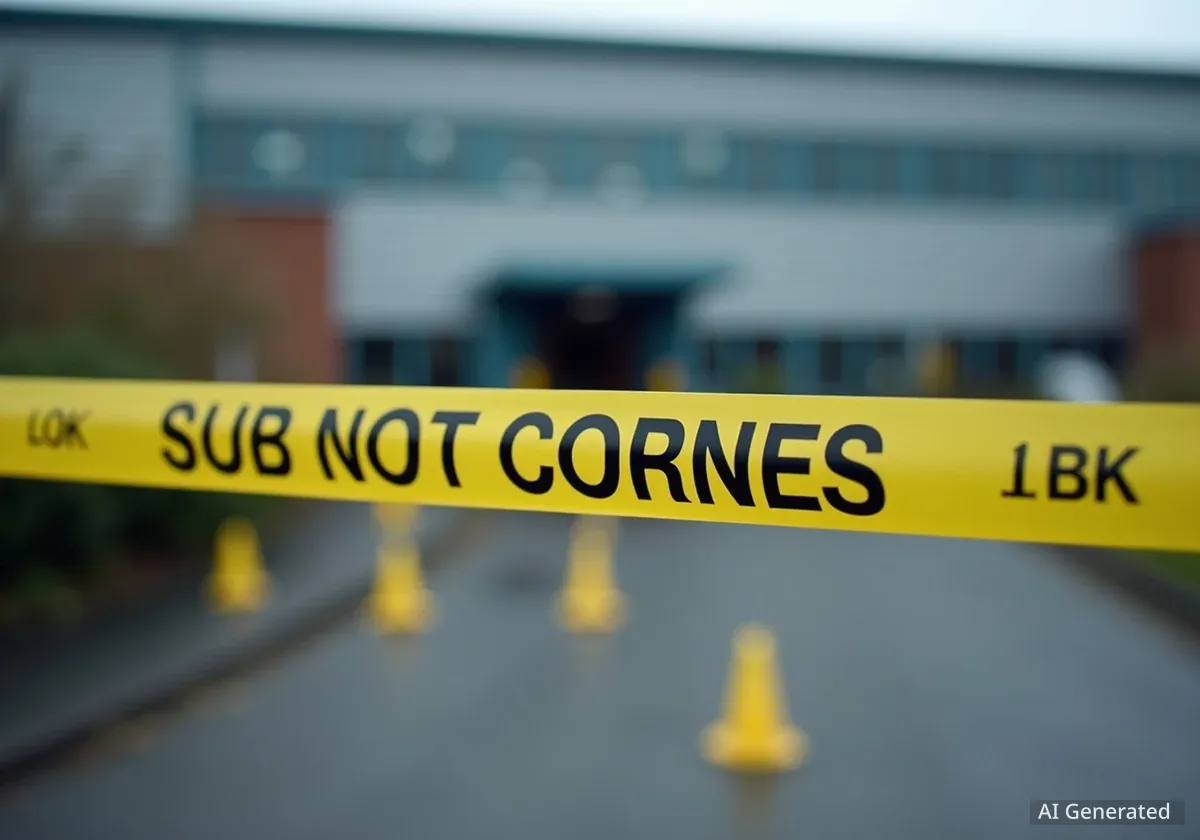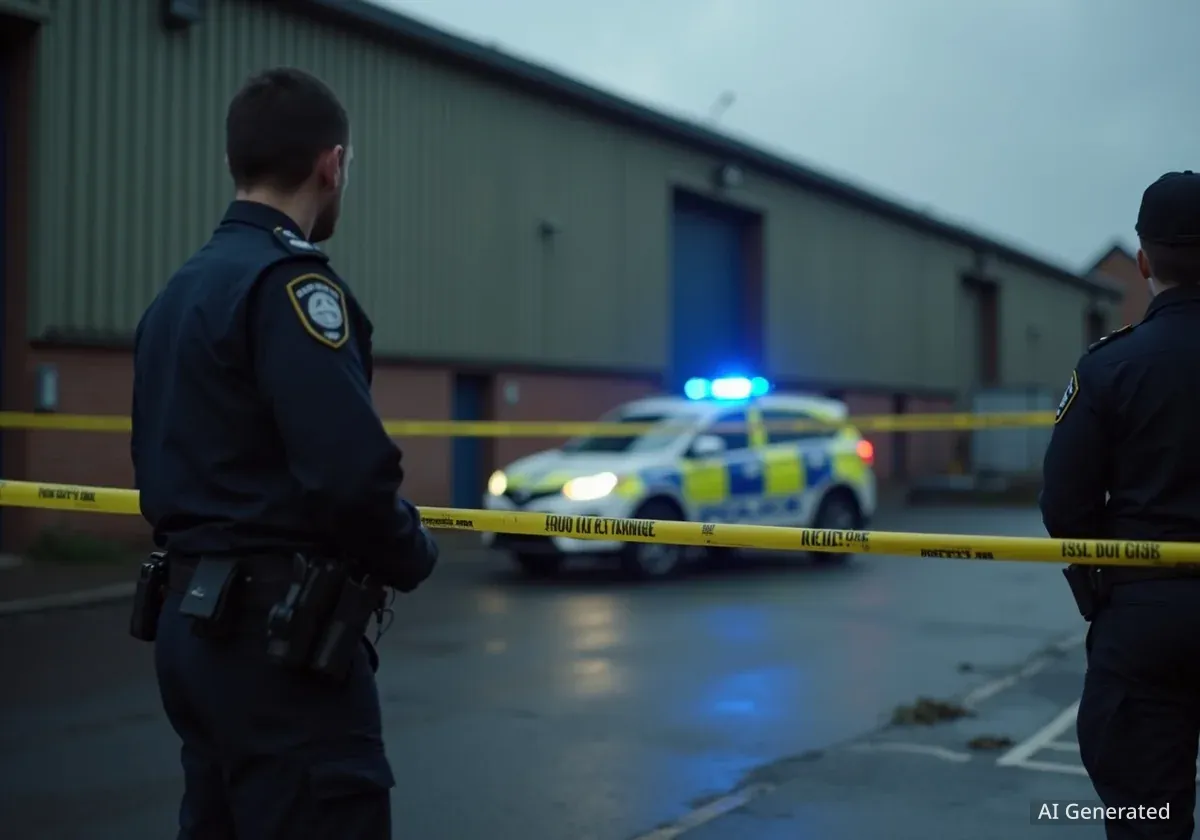When a person dies at their place of work, a detailed and often lengthy investigation is launched to determine the cause and identify any breaches of safety regulations. In Merseyside, recent tragic incidents have highlighted the critical role of the Health and Safety Executive (HSE), the national regulator for workplace health and safety, which works alongside the police to investigate these events.
These investigations are mandatory for any work-related death and can lead to significant consequences for companies or individuals found to be at fault, including substantial fines and imprisonment. The process is designed to be thorough, ensuring accountability and aiming to prevent future tragedies.
Key Takeaways
- Work-related deaths trigger a mandatory joint investigation by the police and the Health and Safety Executive (HSE).
- Police initially lead to investigate potential crimes like manslaughter, while the HSE focuses on health and safety law breaches.
- Investigations can be complex and lengthy, often taking over a year to conclude.
- Consequences for breaches can include unlimited fines and prison sentences for individuals found responsible.
- The HSE provides dedicated support to the families of victims throughout the investigation process.
The Immediate Response to a Workplace Fatality
Following a death at a workplace, the initial response is coordinated between emergency services and law enforcement. The police are typically the first to notify the HSE, often through a dedicated out-of-hours contact line.
Emily Osborne, a principle inspector for the HSE based in Bootle, explained the first steps. "The usual way things will happen is that we will get a phone call from police," she said. "Sometimes inspectors will go to the site straight away and we will work with the police initially."
Police Primacy and HSE's Role
From the outset, the police hold primacy in the investigation. Their immediate priority is to determine if a serious criminal offense, such as gross negligence manslaughter or corporate manslaughter, has occurred. This involves securing the scene and gathering initial evidence.
The HSE's role runs parallel to the police inquiry. "HSE are there to look for any failures to follow health and safety laws," Osborne stated. "We will always allocate an inspector if it is a work-related death as that is a mandatory investigation." This means that regardless of the police findings, the HSE will conduct its own thorough review of workplace practices and safety compliance.
Recent Tragedies in Merseyside
The region has seen several high-profile workplace deaths. In August 2023, 26-year-old Michael Jones died during construction work at Everton FC's new stadium. More recently, a 43-year-old man died after falling approximately 30 feet into an empty silo at Dugdale Nutrition in Speke. Both incidents triggered major HSE investigations.
The Investigation Process Explained
The investigation into a workplace death is a meticulous process involving multiple stages of evidence collection and analysis. Inspectors gather a wide range of information to build a comprehensive picture of the events leading up to the incident.
Evidence Collection and Specialist Input
Investigators conduct detailed examinations of the site, taking extensive photographs and collecting physical evidence. A crucial part of this is interviewing witnesses and taking formal statements to establish a clear timeline of events.
"Our investigation will usually involve the collection of evidence, we will talk to witnesses, take statements and take a lot of photographs," Osborne confirmed.
The HSE can also call upon a team of specialists to provide expert analysis. "For example this could be a specialist in workplace transport if there has been an incident with a forklift truck," Osborne added, highlighting the technical depth of these inquiries.
How Long Do Investigations Take?
One of the most difficult aspects for families and the public to understand is the length of time these investigations can take. Due to their complexity and the number of parties often involved, a conclusion is rarely reached quickly.
"When we get asked how long an investigation can take, the answer we want to give is how long is a piece of string, because we just don't know," Osborne explained. While the HSE aims to complete its investigation within a year if it has primacy, this can be extended by requests from the coroner or the Crown Prosecution Service (CPS).
Mandatory Investigations
Under UK law, any death that is work-related must be investigated by the HSE. This applies not only to employees but also to members of the public who may be fatally injured as a result of a work activity, such as a child on a farm or a person struck by a falling tree in a managed park.
Legal Framework and Potential Consequences
The HSE operates as an independent regulator under the Health and Safety at Work Act 1974. This legislation gives it significant powers to enforce safety standards and prosecute those who fail to meet their legal duties.
"We are a regulator, I think that is something that a lot of people don't know," Osborne noted. "This means we can take enforcement action and prosecution action where appropriate. We have a legal department. We have our own lawyers who take prosecutions for us."
From Investigation to Prosecution
If the police investigation suggests a serious criminal offense, the case is passed to the Crown Prosecution Service (CPS) to decide whether to press charges like manslaughter. The HSE's findings on health and safety breaches are submitted alongside the police evidence. If the CPS decides to proceed, both sets of charges are often brought forward together.
The consequences for being found guilty of serious health and safety breaches are severe. These are criminal offenses, not civil matters.
"These are criminal investigations and they can lead to fines or prison," Osborne stated. She mentioned a recent case where an individual was imprisoned after pleading guilty to a breach of the Health and Safety at Work Act. While prison sentences are not common, they are a possible outcome.
Support for Bereaved Families
Throughout the entire complex and often distressing process, the HSE places a strong emphasis on supporting the families of those who have died. The organisation recognises the profound impact these events have on loved ones.
Osborne stressed the importance of this aspect of their work. "Our work with victims is really important," she said. A lead inspector is assigned to communicate directly with the family, provided they wish to engage.
"Myself and the lead inspector will meet with the family wherever they may wish to meet us. They can ask us anything about the process and we will make sure they are kept informed," Osborne concluded. "We do support families very strongly." This ongoing communication ensures families are not left in the dark during a difficult and uncertain time.


